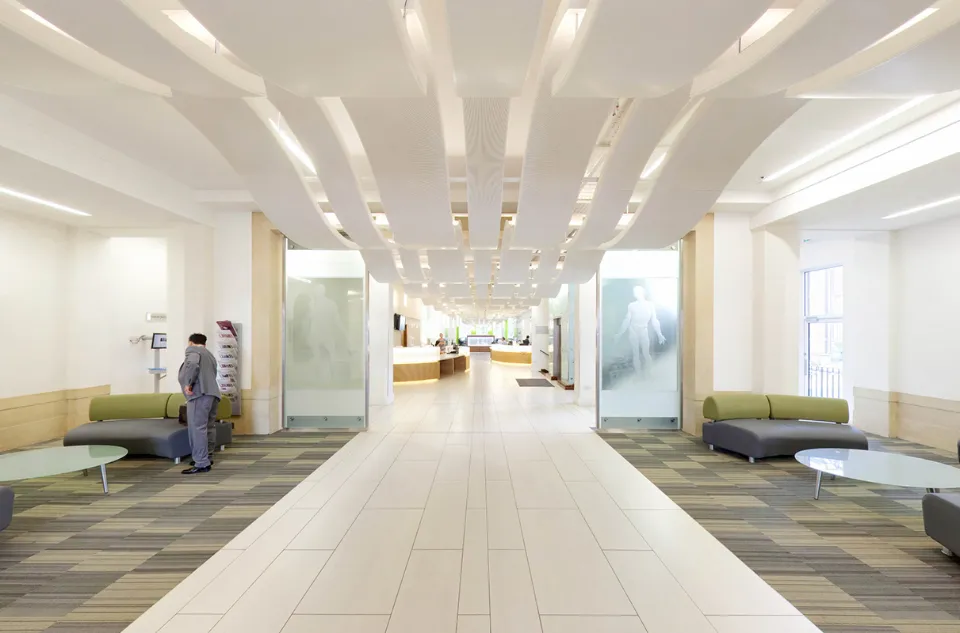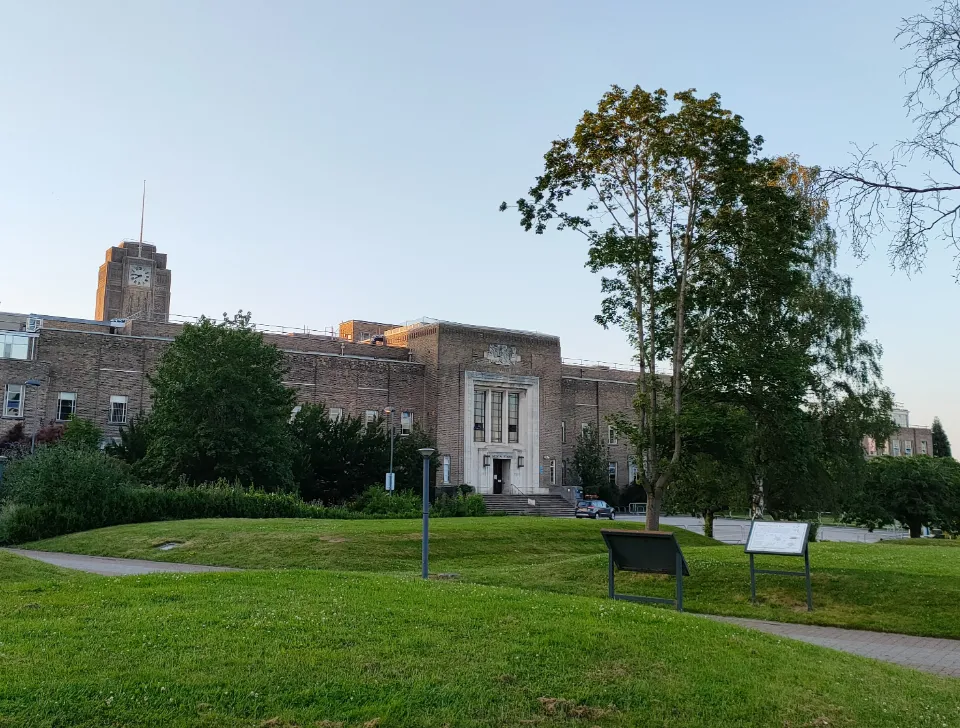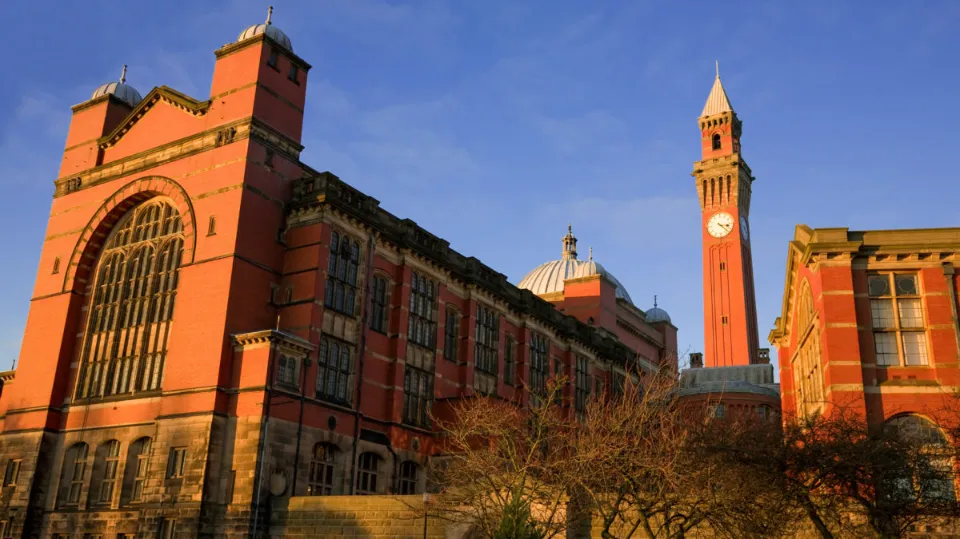If you are considering studying at Birmingham Medical School, this guide will help you.
With exposure to a variety of ethnic backgrounds, genders, sexual orientations, and socioeconomic statuses, Birmingham offers students a diverse environment in which to learn medicine.
Today, we are focussing on Birmingham Medical School, in the City of a Thousand Trades, or Brum if you will. Currently enrolled student Sumayyah from Birmingham Medic shares her thoughts and experiences.
About Birmingham Medical School
Anatomical demonstrations were first conducted by a local surgeon named Mr. Sands Cox in 1825, marking the beginning of Birmingham Medical School. One of the largest and oldest medical schools in Britain is this one.
By 1828, the school was comprised of a lecture theatre and a museum/dissecting room. Then, in 1841, the Queen’s Hospital opened for teaching and the rest is quite literally history.
The teaching of medical and dental sciences at Birmingham Medical School is now recognized on a global scale. It is not surprising that a number of its alumni are fairly well-known given the school’s historical strength in the medical field and its outstanding facilities.
In addition to Peter Weissberg, the former Medical Director of the British Heart Foundation, and Sir Harry Gilbert Barling, notable alumni include Leon Abrams, who created and implanted the first variable-rate heart pacemaker.

What is Studying at Birmingham Medical School Like?
Birmingham’s medical school uses lectures, tutorials, hands-on classes, bedside demonstrations, and clinical experience to teach students about medicine. Additionally, there is a very small amount of problem-based learning (PBL).
The teaching style will be different from what you are used to as a great deal of learning is from student-selected inquiry-based learning. Instead of merely presenting information or laying out a clear path to knowledge, this approach focuses on asking students questions, solving problems, or creating scenarios.
In order to advance their knowledge, students are more responsible for their own education and must choose topics and questions to investigate. In addition to the customary structured teaching sessions, this type of learning is available.
Since they can graduate as more capable and independent learners while also receiving support to get there, many students favor this method of instruction. Aside from inquiry-based learning, Birmingham also exposes you to outstanding facilities and a lot of patient contact hours. A sizable portion of your education is spent on clinical placements.
Birmingham Medical School Entry Requirements
Below are the requirements to enter Birmingham Medical School:
- WORK EXPERIENCE EXPECTATIONS:
The selection process for interviews does not take work experience into consideration. The knowledge acquired through work experience will be invaluable in helping candidates respond to the questions asked of them in the interview.
- ADMISSIONS TEST: UCAT
Home applicants: Score allocated based on ranking the total of the scores for the four UCAT subtests. Scores are ranked into deciles; there is no cutoff.
International applicants: Total score ranked to establish a cutoff. Scores for the interview stage are based in part on the outcome of the Situational Judgement Test.
- PERSONAL STATEMENT USAGE:
The personal statement receives no points. It is expected that the statement provides evidence of commitment to study medicine.
- INTERVIEW TYPE: MMI
Assessment criteria for candidates include how well they handle moral and personal dilemmas, how motivated and knowledgeable they are about medicine, and how well they perform calculations and role plays.

As explained on this medical school’s website: “for the 2021/22 application cycle we are likely to interview all candidates online. For the 2020–21 application cycle, we adjusted the format of our Multiple Mini Interviews (MMI) to account for this change. Details can be found in the section below titled “Interview Format and Stations.”
- COURSEWORK SUBJECTS EXPECTED: Biology (strictly required), Chemistry (strictly required)
See the notes below regarding typical offers for more information on the subjects that this medical school expects.
Example of Birmingham Medical School Interview Questions
- Why do you want to pursue a medical education at the University of Birmingham? (2018)
- A potential medical student has asked for your opinion on whether to apply to study medicine and, in particular, whether s/he should apply to Birmingham Medical School. Over the next 6 minutes, discuss with the student their plans and whether they should apply to Birmingham Medical School. (2019)
- Tell us about GMC, please. (2020)
- What are the demands placed on doctors? (2021)
- Examine the enclosed table or graph, then describe your conclusions. (2019)
- Why do you want to become a doctor rather than a nurse? (2021)
- Which medical conditions do you believe local doctors in our area are powerless to treat? (2018)
- What have you encountered difficulties with? What do you anticipate being a challenge during medical school? (2020)
- Read this article to learn more about the proposed sugar tax. What do you believe? (2019)
- Speak with an actor who has visited the doctor’s office to discuss his depressed mood over the past three months. (2020)
- In the UK, should there be a choice to donate one’s organs or not? (2021)
- A friend of yours has repeatedly missed university due to “illness”. On Instagram, you see them away on a party holiday in Toulouse, meaning they have missed hospital clinics for 1 week. What do you do? (2020)
Are There Lots of Exams in Birmingham?

There is a single essay during each term or semester, worth a total of 10 credits out of a possible 120 for the entire year. After Christmas, there is a multiple choice question (MCQ) paper covering semester 1 (worth 16 credits) with a short-answer question (SAQ) paper on semester 1 during summer exams (24 credits).
The same respective exams for semester 2 occur in the summer exam period. There is also an anatomy exam during the summer exams, which includes SAQs and a longer answer essay. Finally, there is a group presentation in the second semester, which carries a 10 credit value, along with a quick summer exam on PAS.
Advice for Birmingham Medical School Applicants
Attempt not to be alarmed by how big the campus is! And the silent study spaces aren’t as daunting as they seem. Whether you are a first-year, third-year, or final-year student, you will always have things to do, you will be busy, and your list of tasks and work to do is just as valid as anyone else’s.
If anything, the older years are always so happy to help so approach them and ask for help and tips. When exam season arrives, find out what topics they felt produced the most knowledge, how they prepared, and what they thought the high-yield topics were!
I would also add, don’t cram. You cannot physically cram medicine; it will not benefit you or your future patients. Learn as you go along, revise as you go along and you’ll realize that you then have time to incorporate activities and hobbies into your timetable.
The study of medicine takes five years plus additional coursework. Most importantly, pace yourself because it’s a marathon. Avoid burning out too soon.
